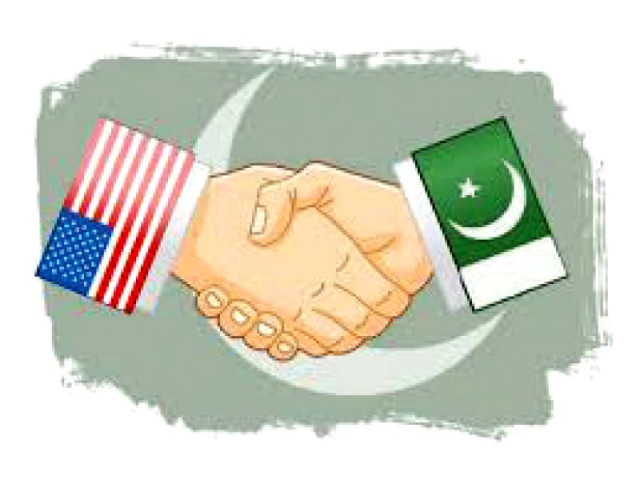Pakistan’s economy: Words of appreciation by US official
Praises govt’s focus on energy, investment and economic reforms.

“We are very encouraged with the first year of the Nawaz Sharif government and its focus on energy, investment and economic reforms has been very promising”, said Sarah Beran. CREATIVE COMMONS
Amid Washington’s desire to expand ties with Islamabad beyond ‘just aid’, the United States sees Prime Minister Nawaz Sharif’s government making significant gains on the economic front in its first year, said an official of the US embassy.
“We are very encouraged with the first year of the Nawaz Sharif government and its focus on energy, investment and economic reforms has been very promising”, said Sarah Beran, Washington’s Economic Counsellor to Islamabad.
Beran comments came at a time when PM Sharif is going to complete one year in office, triggering a debate over his achievements and failures.
Beran spoke on Wednesday to a group of journalists to discuss the outcomes of a meeting of US-Pakistan trade and investment council, established under the US-Pakistan trade and investment framework (TIFA). The meetings were held in Washington this week and culminated on a Joint Action Plan — a blueprint of areas of engagements in next five years.
To a question, Beran said it is important to look at Pakistan’s economic problems on a long-term basis. Many of these challenges are decades old and are going to take time to implement reforms fully. She said few indicators like the recent spectrum auction and the $2 billion Euro bond issuance show that investors are interested in Pakistan, adding that the increase in power tariffs was also a critical decision
“US does not see bilateral relations through the lens of official assistance,” said Beran. When PM Sharif met with President Obama he focused on trade not just aid. “We have tried to answer that with the Action Plan at TIFA Council meeting,” she added. She said President Barack Obama and Prime Minister Nawaz Sharif had instructed senior officials to develop the joint action plan after their meeting, held in October last year.
Beran said revival of Pak-US strategic dialogue last year was a crucial step towards broadening relations.
The credibility of the US has been suffering for long when it comes to fulfilling its commitments towards Pakistan, according to analysts . They say the $7.5 billion assistance committed under the Kerry-Lugar Act was one such example.
Action Plan
Beran said the action plan agreed at TIFA will be implemented and will focus on diversifying agriculture production, promoting intellectual property rights and implementing the world trade organisation trade facilitation agreement. It also seeks Pakistan’s accession to the WTO government procurement agreement, conducting outreach to US state and local governments and increasing dialogue between the US and Pakistan private sectors.
“So far, Pakistani officials’ interaction is limited to the federal US government,” said Beran. “Leaving areas untapped in the US states that offer great opportunities for bilateral trade and investment.”
She said Pak-US bilateral trade stood at $5 billion last year, most of the Pakistani exports are of textile products. But one of the other areas of cooperation is agriculture, which has been identified in the action plan, she added. Pakistani dry mangoes could be exported to the US, offering a lot of potential.
She added that the US Department of Commerce and USAID will provide funds for the programme.
She also reiterated the US desire to see Pak-India trade relations improving. Pakistan and India have the potential of increasing bilateral trade to $5 billion and the US encourages normalisation of trade relations. But it is up to the governments when they want to move forward, she added.
BIT
Beran said the issue of signing the Pak-US Bilateral Investment Treaty was also discussed during TIFA meetings. The Pakistani side raised questions about the BIT which have been addressed by the US. “It is an ongoing dialogue and there was no major announcement at TIFA,” she added. She hoped that talks will continue, as the US was eager to sign the treaty.
GSP
Beran hoped that the package to give limited duty free access to Pakistani products to the US markets will be approved by the US Congress before end of this year. She said during the last GSP scheme Pakistan availed $131 million benefits on about 3,500 product lines.
Published in The Express Tribune, May 15th, 2014.
Like Business on Facebook, follow @TribuneBiz on Twitter to stay informed and join in the conversation.



















COMMENTS
Comments are moderated and generally will be posted if they are on-topic and not abusive.
For more information, please see our Comments FAQ